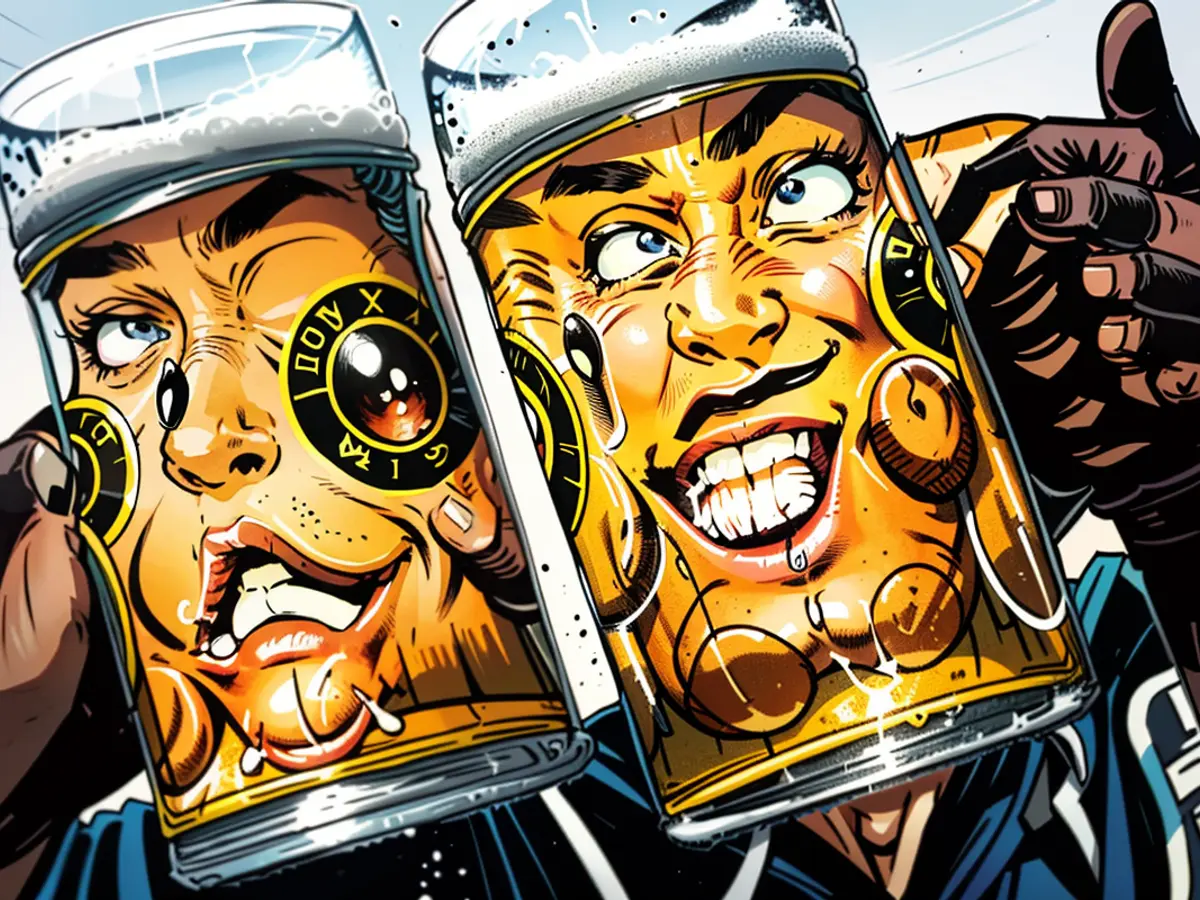Bayern (German for Bavaria) - The Zero in Munich: There is no alcohol in this beer garden
In a beer garden, there is beer - that's normal. But in Munich, a special variation is planned. Near the main train station, an alcohol-free beer garden is set to open. The significant name: "Die Null". The organizers write that the beer garden culture will not be defined by alcohol, but by coming together in the open, offering mocktails (cocktails without alcohol), juices and other non-alcoholic beverages, as well as beer, of course, alcohol-free. Additionally, cultural offerings, parties, or dance evenings are planned. Details will be presented at the opening in the afternoon, which Obermayor Dieter Reiter (SPD) also intends to attend.
Concept against degeneration tendencies in the beer garden
The beer garden is planned to be at Karl-Stützel-Platz until September 15th, open from 5 pm to 10 pm on Wednesdays to Saturdays, provided the weather is suitable. Organized by gastronomes who want to revitalize and enhance the area between Luisengymnasium, a noble hotel, and the Old Botanical Garden. Their initiative is part of a comprehensive concept with which the city wants to counteract degeneration tendencies. The area around the main train station and the Old Botanical Garden should once again become more attractive, so that people feel safe there and want to stay, said Reiter recently.
The Association for the Preservation of Bavarian Economic Culture welcomes the idea. Business manager Ursula Zimmermann: "We welcome every initiative that enlivens the tavern landscape. An alcohol-free beer garden complements the existing offerings and can be an interesting alternative for some. And the gastronomes could create a unique selling point. However, no one is forced to consume alcohol in other beer gardens, emphasizes Zimmermann."
"Life and let live"
The managing director of the Bavarian Brewers' Association, Walter König, refers to the motto "Life and let live" and draws a parallel to different beverages. "Why should a host exclude a customer circle based on the beverage offering? Every guest should be able to order and drink what suits him at the moment, and that can change depending on the occasion, mood, and time of day," he thinks.
The customers receive beer without alcohol, including malt beverages. 471,300 hectoliters were produced in the first quarter of this year, 44,500 hectoliters more than in the previous business year. Sixty percent of this fell on alcohol-free wheat beer, a quarter on under-pressure beer. As a reason for the increasing popularity, König names the scientific and technological effort that was invested to improve the taste.
- In Bavaria, the SPD mayor of Munich, Dieter Reiter, is supporting an initiative to revitalize the area around the main train station, which includes the opening of a special beer garden called "Die Null".
- Despite being located in Munich, known for its beer gardens, "Die Null" will offer a unique twist by providing both alcoholic and alcohol-free beverages, including mocktails, juices, and non-alcoholic beer.
- The opening of "Die Null" beer garden will include cultural offerings, parties, and dance evenings, aiming to attract more people to the area and counteract degeneration tendencies.
- The Bavarian Brewers' Association, represented by managing director Walter König, supports the idea and believes that every guest should be able to order and drink what suits them, whether alcoholic or non-alcoholic.
- The popularity of alcohol-free beer seems to be increasing, with 471,300 hectoliters produced in the first quarter of this year, a 44,500 hectoliter increase compared to the previous year, showing a growing interest in this alternative beverage option.








